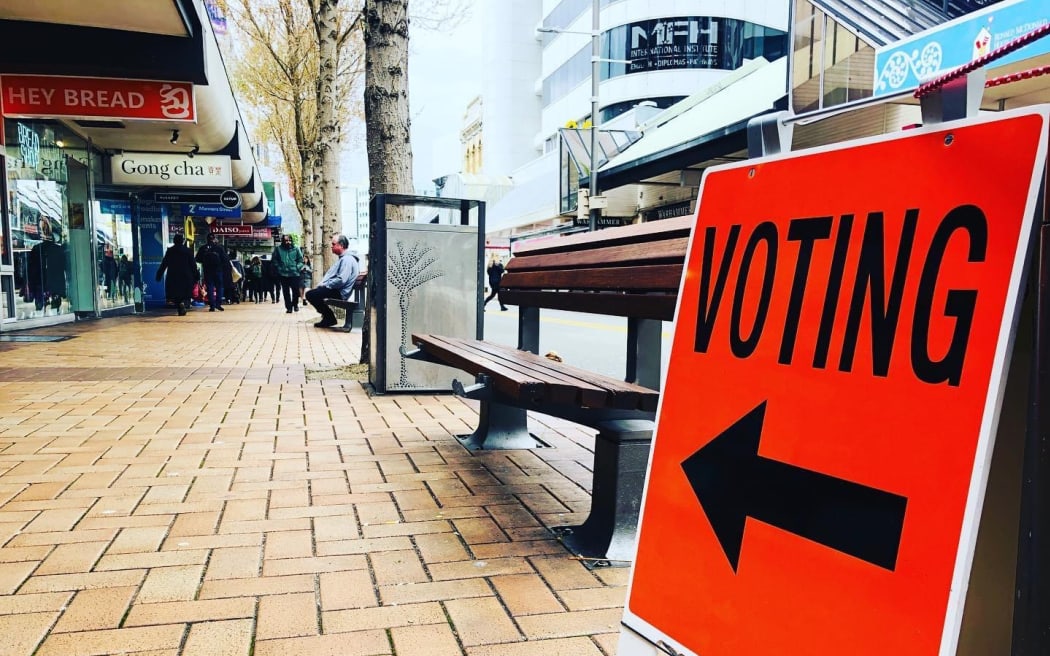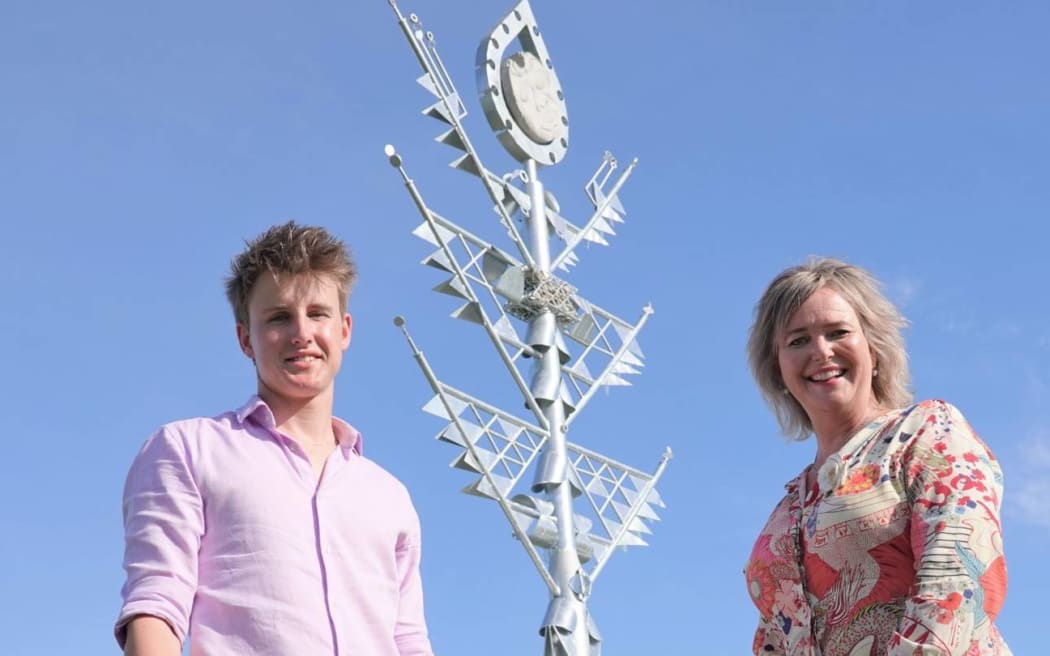In a few months, New Zealanders will head back to the polls to vote. Every three years, on the second Saturday of October, New Zealand holds local elections. Kiwis get the chance to vote for many different things: City and district councils, mayors, community and licensing trusts.
That is a lot of choices for a young person voting for the first time.
These elections elect many different roles that help run our local communities. With such an important job, why did only 42.2 percent of eligible voters in the 2019 local election vote?

A sign points towards a polling place on Manners St in central Wellington Photo: VNP / Daniela Maoate-Cox
When it comes to our general elections, New Zealanders are eager to vote. In the last general election in 2020, there was an 82.2 percent turnout of eligible voters - a 40 percent difference compared to the last local election!
This lack of engagement is even more concerning when you look at the statistics of young people voting. According to a 2016 Local Government New Zealand report, young people aged 18-24 years old were only about half as likely to vote in a local election as somebody over 65 years of age.
For many young New Zealanders, this upcoming local election will be the first time they can vote. With turnout low for the youngest eligible voters, there must be reasons why young people aren't voting.
“Young people aren't aware of the many impacts Local Government has on their daily life,” said Youth MP for Mount Albert, William Bell-Purchas.
“Information about Local Government is inaccessible to young people, and there is a lack of education on Local Government in schooling. As a result of this, many young people don't see the significance of their vote.”

MP for Tukituki, Anna Lorck pictured with her Youth MP Keelan Heesterman. Photo: Georgia May-Gilbertson
New reasons to care
The issues in our communities have changed since the last local election. The Covid-19 pandemic had not started and inflation was not at the scale seen today. As well as this, the effects of climate change and the housing crisis have become more noticeable.
Many councils are also facing a debate over intensifying their cities to allow denser housing to be built. Many youth are concerned with whether there will be enough housing for them to live in the future. Other groups have raised concerns about the potential demolition of heritage buildings, and increased noise and pollution due to denser housing.
“Intensification will be a very important issue. As New Zealand cities grow, we have to ensure that the services councils provide are delivered equitably to all communities, are sustainable and designed with people in mind,” Bell-Purchas said.
All these problems seem very overwhelming to many young people but in October, they have the chance to help select representatives to act on these local problems.
Youth MP for Tukituki, Keelan Heesterman identified the most important issues in the upcoming local election.
"Three Waters, despite being a central government reform, will affect the role of councils around New Zealand. Putting water infrastructure management on the table will create a big talking point. Other issues will be around housing, and what candidates’ views are on intensification and building up.”
“For young people, I suspect many will be approaching these issues through a lens of how they’ll be affected, primarily in the long term," he added.
The issues Aotearoa faces on both a national and local level have changed in the past few years. In October, when many youth can go to the polls for the first time, they have a chance to have a say in how their community runs. With low voter turnout, and a lack of information for youth about local elections, it remains essential to get rangatahi out to have their say.
*Gryffin Powell is a member of the Youth Press Gallery which takes the role of independent media reporting on Youth MPs and Youth Parliament 2022. This article can be republished freely on your platform subject to the following conditions:
- It must be republished as is (this can include visuals credited to VNP or NZ Parliament)
- It must include the following attribution to RNZ as the copyright owner: This story was originally published on RNZ and is republished with permission.

